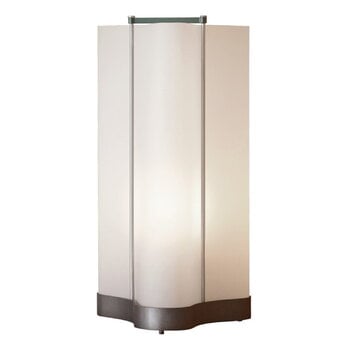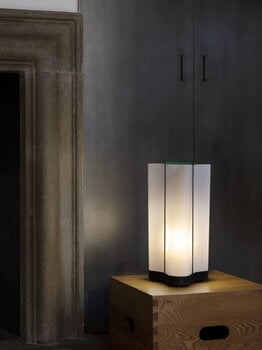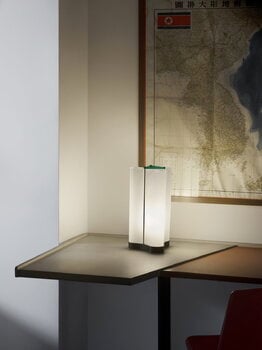Nemo Lighting's Lampe Cabanon table lamp is yet another one of the stunningly beautiful works by architect Le Corbusier. The lamp is named after the Cabanon building, which Le Corbusier built on the French Riviera in the 1950s. For him, this hidden cottage represented an archetype of living and served as a refuge in his final years. Now, the sculptural Lampe Cabanon represents that cottage and the lifestyle it symbolises.
Lampe Cabanon's shade is made of delicately beautiful tracing paper – in the original version, the shade was made from a mortar shell carrier Le Corbusier found on the coast. Shining the delicate light through the paper, the lamp is ideal for a bedroom or as an eye-catching decorative item in a living room. The green detail on the top finishes the look of the lamp by adding a nice touch of contrast.










